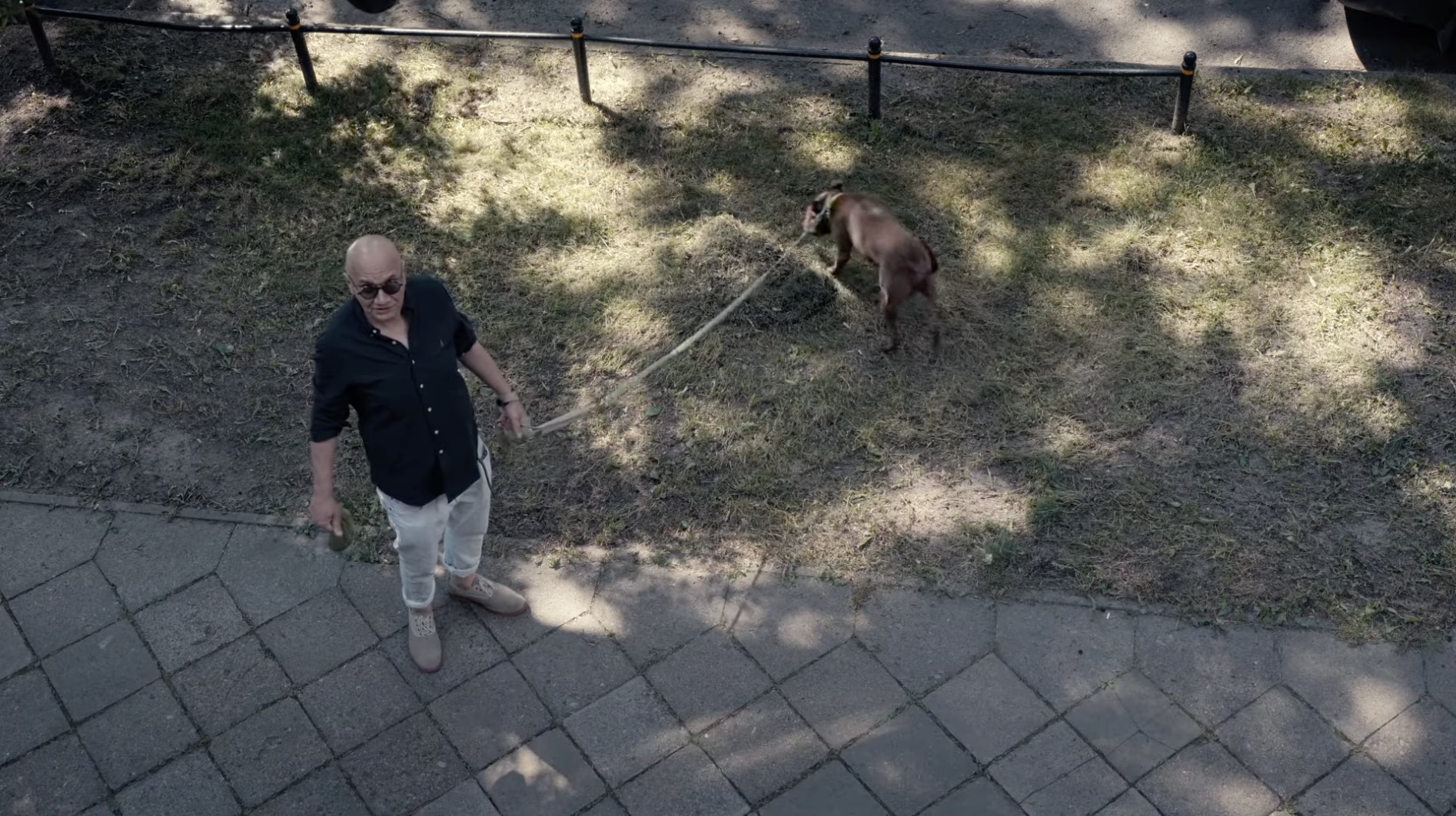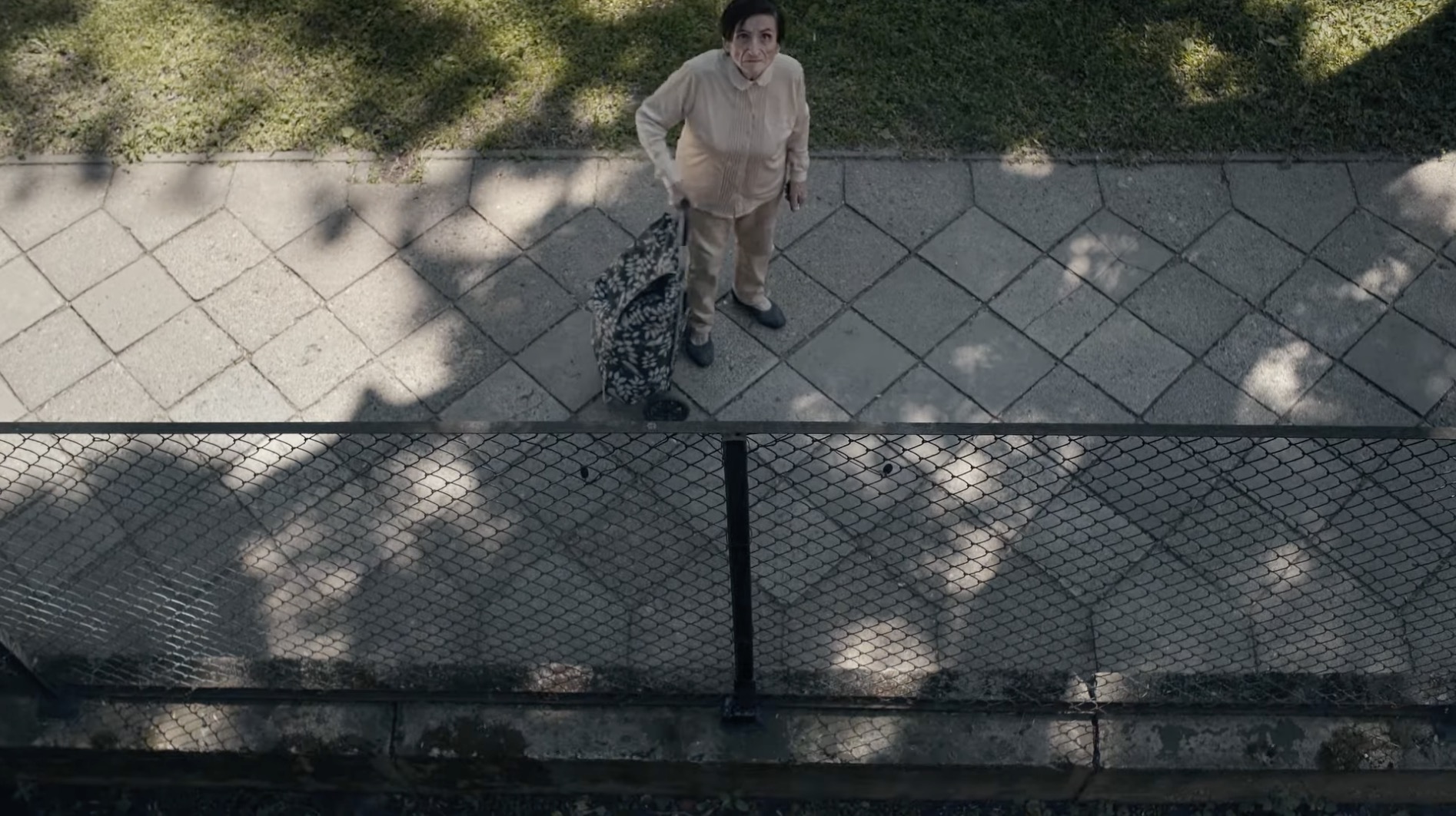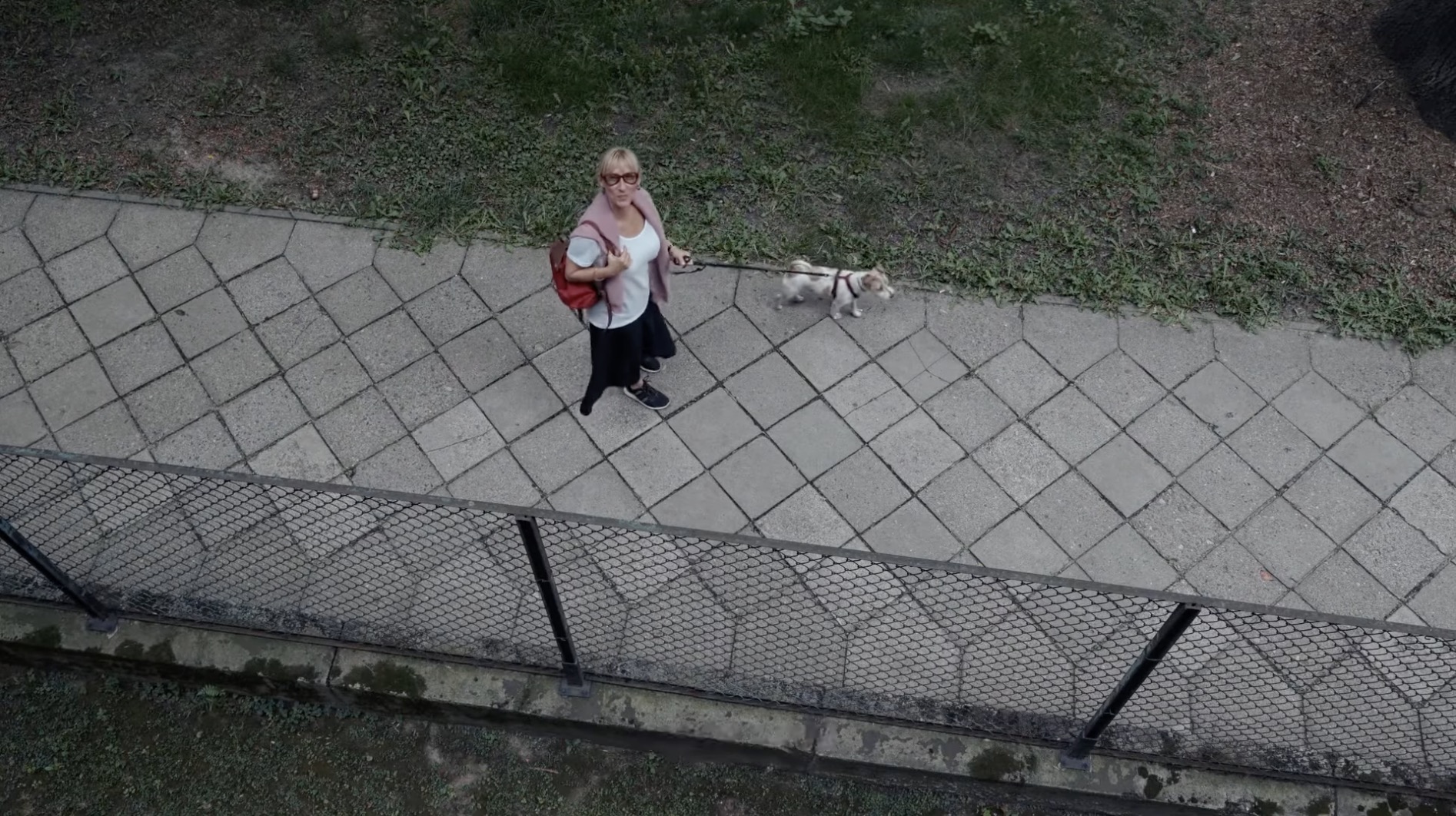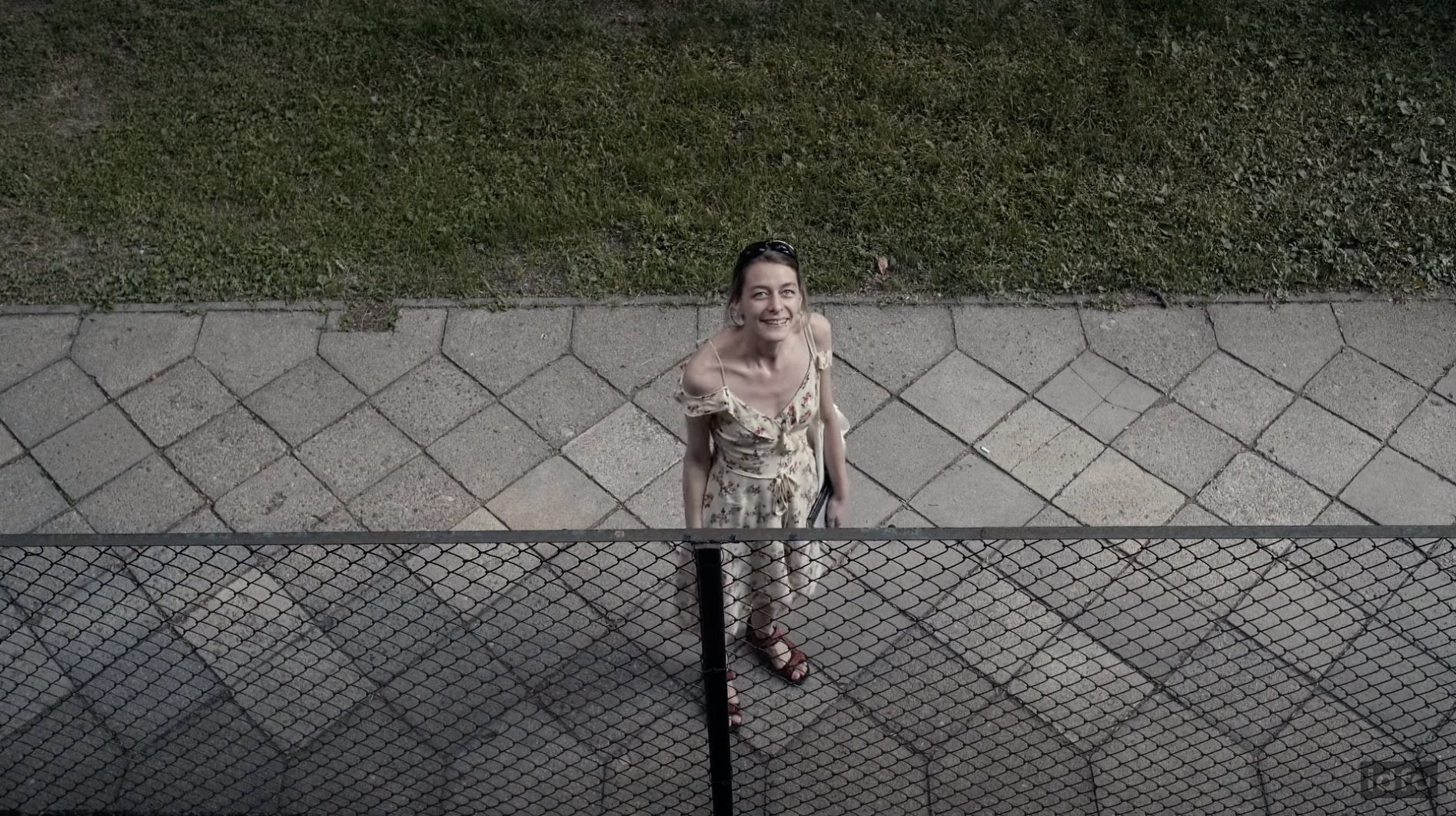[This review was originally published at Give Me Some Light on April 15, 2023.]
What a joy I’ve just discovered. And you can too.
At first, I thought that Pawel Łoziński’s new documentary The Balcony Movie was a pandemic project. And the farther I got into the film the more I wished I could turn back the clock and be more creative with those first two years of COVID isolation. Why not just set up a camera and a microphone somewhere and make something of what happens right in front of you?
All this Polish documentarian did, after all, was set up a camera and a microphone on the balcony of his second-story apartment and interrupt passersby with questions about their circumstances, their dreams, their fears, and their takes on the meaning of life. And what he captured may seem haphazard at first, but it grows into a sort of improvisational poetry as various pedestrians respond to his casual questioning by ignoring him, taking offense, begrudgingly agreeing to play along, giving him more than he probably wanted, immediately exposing their hearts’ open wounds, or challenging him with counter-questions.

Increasingly curious, I started reading and learned right away that this project began in 2018 before the tsunami of COVID required lockdowns around the world. I’m not familiar with Łoziński’s earlier work, nor have I seen anything but his apparently acclaimed filmmaking father Marcel Łoziński, but somehow this fact makes me doubly curious about these filmmakers. If they have these creative instincts without having to resort to them out of necessity, what other kinds of provocative pictures might they have made?
It seems like such an ordinary stoop on which a filmmaker might set up shop, but what transpires is remarkable. I kept thinking about Wim Wenders’s watchful angels over Berlin in Wings of Desire. (I know, I know — I say that a lot.) But think about it: Here, we can hover over unsuspecting Warsaw citizens and, if we’re lucky, catch them in candid confessions or unguarded flashes of temper or humor. We see representatives of every living generation; men and women in love; women grieving lost husbands or raging about their affairs; men struggling with being thrown out of their own marriages, and one grieving the loss of a male partner that he’d had to pretend was his brother; alcoholics grieving their addiction; ex-cons grieving their mistakes; dog walkers; and members of Łoziński’s own family.

At Filmmaker, Łoziński says,
I was always interested in what the passersby under my balcony have in their heads and hearts. Sometimes I sat there, privately without a camera, and overheard what they were talking about. The film came from simple curiosity: Who are they? Where they are going and what is the meaning of their lives? It was an experiment for me and for them. I asked myself, Is there a chance to meet an entire cross-section of people by putting the camera in a fixed place? I was trying to change the rules of the normal documentary game – this time it’s not me following the people with my camera around the world, but me waiting for them until they enter my frame.
The authenticity, the inimitable qualities of these particular human beings — the fact that they are so compelling, and that the film becomes so absorbing, is something of a lesson: We could be out there, on our own porches, in our own coffee shops, walking our own sidewalks, and, if we learn to look through lenses of possibility and generosity, we might find friends in neighbors from here and faraway. Just yesterday, working on another writing project, I was trying to remember the actual, literal neighbors that I had when I was a child. I found them all so mysterious, and imagined so many stories. This made me wish I’d been braver in meeting them. I should pay attention to that. I have actual, literal neighbors now with whom I’ve never even made eye contact.

Is The Balcony movie great cinema? That’s a more complicated question. Łoziński isn’t just some guy with a camera. He worked as an assistant for my favorite director of all time: Krzysztof Kieslowski. He knows things. And he does some remarkable things here in editing, in balancing this film between seasons, in selecting from his most rewarding interactions so that there are some threads that weave these seemingly arbitrary moments into a meaningful tapestry. I doubt that The Balcony Movie will ever become a staple of film-studies syllabuses, but it belongs in any expansive survey of documentaries as an example of what can be possible when a filmmaker is open to playfulness and improvisation. We end up with a document of a time and a place that nobody else could reproduce if they tried. The people of 2018–19 Warsaw, Poland are a whole lot more real to me now, here, in Shoreline, Washington 2023, than they might have been otherwise.

And I should make a record here of something significant: I don’t think I can recall a moment in all of my moviegoing history in which I was moved to tears faster by a character or a documentary subject than I was by one of Łoziński’s unexpected visitors. I won’t say the person’s name — I want you to discover her for yourself. But our host is good-humoredly looking for “a hero” for his film. And, against heavy odds, he finds one I will never forget.
My thanks to Ken Priebe for persisting in recommending that I seize the opportunity to watch this on MUBI — a streaming service so extravagant with essential viewing these days that I just can’t keep up. Subscribe, even if only for a month, so you can see this and several other recent wonders, like What Do We See When We Look at the Sky?, my #3 favorite film of 2022.